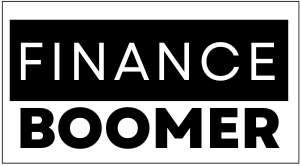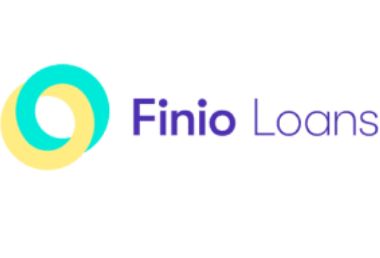Top 6 Options for Small Business Loans in Australia for Foreigners
Gaining access to small business loans as a foreigner can be really daunting. For most foreigners in Australia who are unfamiliar with the financial terrains, this article will help simplify the process. We are here to make accessing small business loans for foreign entrepreneurs in Australia easier. From secured to unsecured loans, we will explore a range of financing options that cater to the needs of small businesses.
1. Secured Business Loans
Secured business loans are very beneficial for foreign individuals looking to start or expand their businesses in Australia. These loans are backed by collateral such as inventories, equipment, real estate or other valuable assets. Due to the collateral being pledged, lenders are able to offer higher loan amounts and more favorable terms with less risk involved.
With a secured business loan, it is important to weigh the options involved and understand the implications of providing collateral. If at any point, the business fails to repay the loan due to one reason or the other, the lender is liable to take possession of the collateral. With this collateral, they can make up for the outstanding debt. Before taking on this option, assess the risk and ensure that the business can meet up the repayment requirements.
The following are some key points to consider when looking into secured business loans.
- Collateral requirements may differ based on the lender and loan amount
- Interest rates on secured loans are usually lower than that of unsecured loans due to the reduced risk involved for the lender.
- Loan terms can be more flexible, with longer repayment periods available.
- Compare different lenders and loan options in order to get the right fit suitable for your business needs.
2. Unsecured Business Loans
Businesses with no collateral, or that prefer not to provide any may find the unsecured business loans a better alternative. These loans are suitable for small businesses with no substantial assets to pledge. Keep in mind that unsecured business loans come with higher interest rates because there is more risk involved for the lender.
In the event that the business is unable to meet up with its repayment obligations, lenders may still require a personal guarantee, tying the loan to your personal credit and holding you accountable for it. This is why you should read and understand the terms and conditions before putting in for an unsecured business loan.
In Australia, the following are some of the major lenders providing unsecured business loans:
Before applying, compare the rates and terms offered by different lenders to find the best fit for your business needs.
| Secured Business Loan | Unsecured Business Loan |
| Requires Collateral | Collateral not required |
| Lower Interest Rates | Higher Interest Rates |
| Flexible or longer repayment plan | Lower repayment period |
| Lower risk involved for the lender due to collateral | Higher risk involved for the lender |
| Loan amount based on applicant’s collateral value | Loan amount based on applicant’s credit worthiness |
Also Read: Understanding How Merchant Cash Advance Loans Work in Australia
3. Business Line of Credit
Business line of credit offers a flexible plan for foreigners seeking business loans in Australia. They can be secured or unsecured. This option allows you access to loans either in lump or smaller amounts. You can access funds on a short-term basis from your business line of credit and only pay back interest on the amount withdrawn. Depending on your agreement with the lender, you can have access to the same amount of funds as you pay back your balance.
Unlike bank loans which offer larger amounts of money for securing a business space or large equipment, a business line of credit helps with smaller purchases like day-to-day business supplies and office inventories.
Borrowing limits for a Business Line of Credit typically range from $2,000 to $250,000, with APRs varying from 10% to 99%.
Here are some key features and overviews of this loan option:
- Depending on the amount of funds required, no collateral is needed for an unsecured line of credit.
- Draw funds up to a pre approved limit.
- Interest is charged only on the amount withdrawn.
- Flexible repayment options during the draw period.
- Offers quick loan disbursement unlike bank loans or business credit cards.
- Due to their flexible plan and quick accessibility, you may be required to pay higher interest rates.
This type of credit is a good option for businesses seeking quick funds or those that require ongoing access to capital without the need for full disbursement at once.
4. Equipment or Asset Loans
Equipment or access loans like the name implies deals with loans offered specifically to finance the purchase of office equipment, furniture, business items, technological hardwares or heavy machinery. The loan amount given ultimately correlates with the value of the equipment required and may involve a down payment.
The interest rate for equipment loans often range between 8% to 30% making it more attractive than other financing options. Though, the terms of these loans are highly influenced by the lender’s policies and creditworthiness of the borrower.
Using a loan to purchase business equipment invariably serves as a collateral , hence when the borrower fails to meet up with the loan obligation, the lender can take possession of the equipment.
Due diligence is needed before taking up an equipment loan, if buying an equipment may pose a risk then try leasing instead.
Before going for equipment loans, it is important to have the required documentation ready, such as tax returns, profit and loss statements and other personal and business records to improve your chances of getting approved.
5. Invoice Finance Factoring
Invoice finance factoring offers a swift means to gain access to immediate funds by selling outstanding invoices to a factoring company. This method provides a lump sum cash payment usually between 80% and 90% of the invoice value, allowing businesses to bypass the usual 30 to 90-day customer payment period.
Although invoice financing provides immediate funds and improves cash flow, it is important to note that it comes at a cost. The annual percentage rates (APR) for invoice financing can range from 10% to 79%, making it a more expensive form of borrowing.
Not all industries or businesses are best suited for invoice financing, this particular loan structure mostly favors businesses that deal in manufacturing, logistics, construction and wholesale and distribution.
Here are some key features of invoice financing factoring:
- Immediate access to working capital and an improved cash flow.
- Eligibility may include type of business, annual revenue, business age, and creditworthiness of your business customers.
- Approval is based on the client’s credit score.
- No collateral needed
- More expensive than traditional loans.
It is important to weigh the benefits of immediate cash flow against the cost and loss of full invoice value before opting for invoice finance factoring, in some cases the loss accumulated does more harm than good to your business.
Also Read: Top 7 Car Rental Companies in Australia
6. Merchant Cash Advance
Merchant cash advance involves the payment of a lump sum to businesses in exchange for an agreed upon percentage of future sales. This type of financing is helpful to businesses that need quick access to cash and have a high volume of credit card transactions. Unlike traditional loans, MCA’S are repaid through a portion of daily or weekly sales.
Businesses that can benefit from this the most include;
- Retail stores
- Barbers
- Hairdressers
- Salons and Spas
- Restaurants
- Service Businesses
For businesses that meet the required lists, approval rates are notably high, with up to 85% of businesses that apply being accepted. Merchant cash advances aren’t based on interest rate but on factor rate. This factor rate ranges from 1.09 to 1.5, this rate is multiplied by the borrowed amount to determine the total repayment due.
For instance, if you receive an MCA of $5,000 with a factor rate of 1.5, your total repayment would be ($5,000 x 1.5) $7,500.
Here are some key features of Merchant Cash Advance:
- Quick access to cash
- Repayment is through a factor rate which is fixed
- Flexible payment plan that aligns with your cash flow
- Great for businesses with high credit card transactions
- Repayment mode is usually daily or weekly
Getting an MCA can be a great way to boost your business cash flow and growth, it is also helpful to understand the terms and conditions before signing to ensure you can meet the repayment requirements as at when due.
Conclusion
Seeking a small business loan in Australia as a foreigner can be quite complex and exhausting. However, with the right information and resources it is easier to secure the necessary funding. From secured to unsecured business loans to more innovative options like invoice factoring and merchant cash advances, there are a host of financial tools available to support the growth and sustainability of small businesses.
While these financing options are quite enticing and appealing, it is imperative you carry out proper findings. Find out their as interest rates, eligibility criteria and loan terms when choosing the best loan option for your business.
Utilizing resources like loan calculators, carrying out thorough research and ensuring you have the right documentations can boost your chances of finding competitive business loan rates and gaining that financial stability for your small business.







